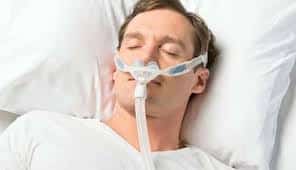
So, you’ve been diagnosed with sleep apnea, and now your doctor mentions CPAP vs. BiPAP machines. At first, it might sound overwhelming. “Which one is right for me?” you ask yourself. Honestly, it’s not just about the machine. It’s about how your body breathes, how comfortable you feel, and what actually works when you’re lying in bed at 2 a.m.
What CPAP Does (And Who It’s For)
CPAP stands for Continuous Positive Airway Pressure. It’s pretty straightforward: the machine blows a constant stream of air to keep your airway from collapsing while you sleep. Most people with obstructive sleep apnea do really well on CPAP.
Here’s the thing—at first, some people feel like they’re exhaling against a small hurricane. That’s normal. Using the ramp setting, adjusting the mask, and just giving yourself a few nights to adapt usually fixes it.
Benefits you’ll notice:
- Reduced snoring (sometimes immediately).
- More energy during the day.
- Feeling less groggy in the morning.
The key? A mask that actually fits. Too loose, and it leaks. Too tight, and it leaves marks or hurts. CPAP is simple, but small tweaks can make a huge difference.
BiPAP: A Little Different, But Sometimes Better
BiPAP, or Bilevel Positive Airway Pressure, isn’t just a fancier CPAP. It actually changes pressures: higher when you inhale, lower when you exhale. That makes breathing feel more natural, especially if exhaling against CPAP pressure feels hard.
Who might need BiPAP?
- People with central sleep apnea.
- Severe obstructive sleep apnea.
- COPD or other lung issues.
- Anyone who tried CPAP but couldn’t get used to it.
Some people find BiPAP instantly more comfortable, though it can be bigger, louder, and more expensive. And yes, you’ll need a bit more guidance from your sleep specialist to get settings right.
Comfort and Compliance Matter Most
Here’s the deal: CPAP vs. BiPAP isn’t just about efficiency—it’s about whether you’ll actually use it every night. If your machine feels uncomfortable, you’re less likely to keep it up, and that reduces effectiveness.
Common issues with CPAP:
- Dry mouth or nose
- Mask leaks or pressure points
- Trouble exhaling at higher pressures
BiPAP can help with some of these because the exhale pressure is lower. But again, it’s still important to get the right mask, humidifier, and settings. One size rarely fits all.
Other Things to Keep in Mind
CPAP machines are usually cheaper and more portable, which makes traveling easier. BiPAP is heavier and sometimes more complicated. Both need cleaning, mask replacements, and filter changes. Neglecting this? Expect leaks, noise, and less effective therapy.
Simple maintenance tips:
- Wash masks and tubing regularly.
- Replace filters as instructed.
- Use distilled water in the humidifier to prevent buildup.
Even small habits like this make a noticeable difference.
Choosing the Right Machine for You
Here’s a practical approach:
- Start with CPAP—it works for most people.
- Monitor comfort and therapy results. Feeling short of breath or waking up tired? BiPAP might be worth discussing.
- Consider any additional conditions, like COPD.
- Look at your sleep study results—your oxygen levels and apnea events guide the choice.
Sometimes, it’s not about switching machines but tweaking mask type, adding a humidifier, or adjusting pressure slightly.
Final Thoughts: CPAP vs. BiPAP
Both machines can be life-changing if used consistently. The right machine is the one you can use comfortably every night. Focus on mask fit, comfort, and proper cleaning, not just the type of machine.
Remember, small adjustments—mask changes, pressure tweaks, or adding a humidifier—can make your nights way better. When the setup fits you correctly, CPAP or BiPAP won’t feel like a chore. It’ll feel like relief. Deep sleep. Real rest.
